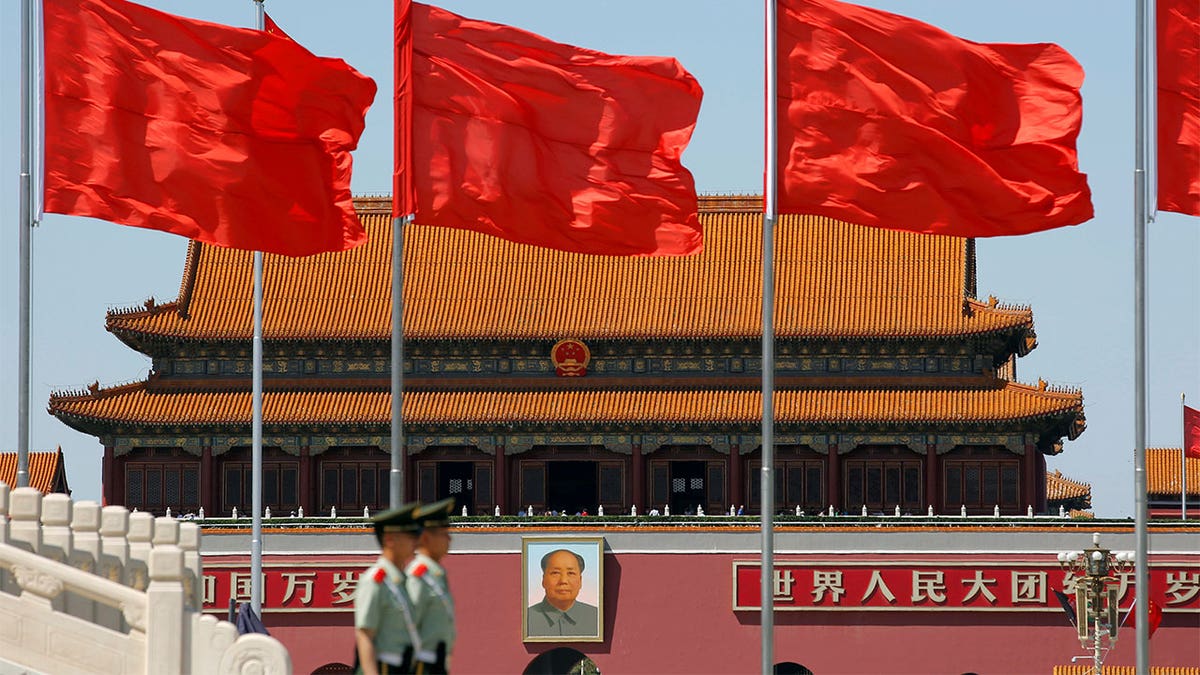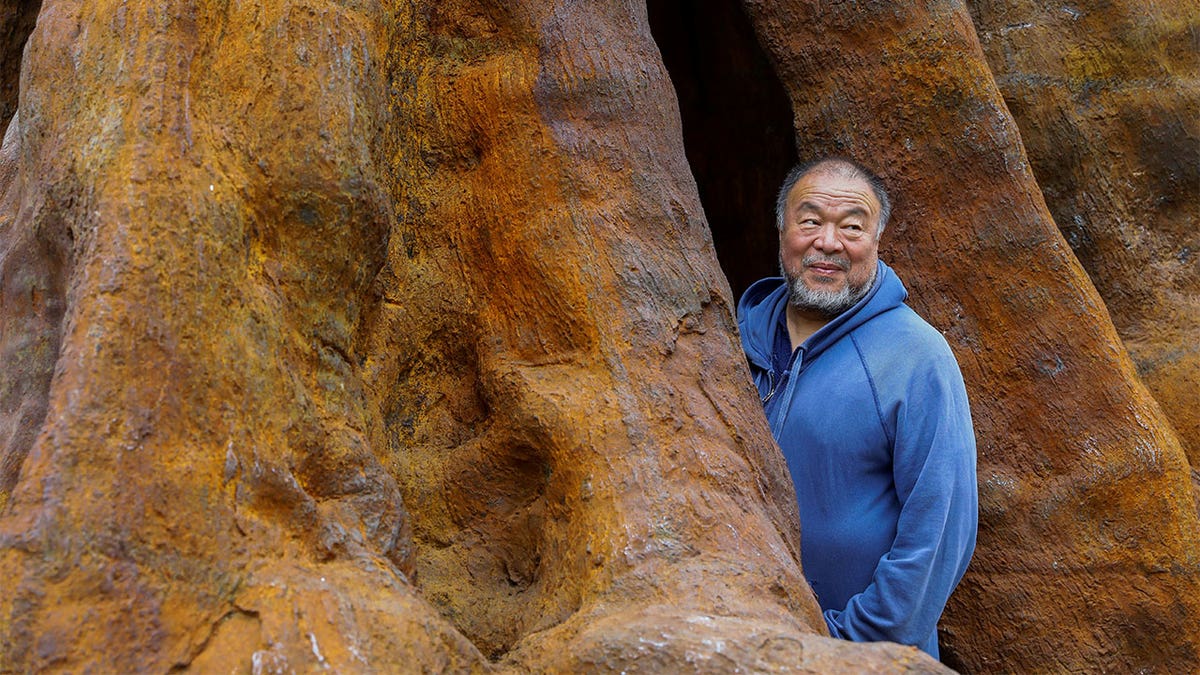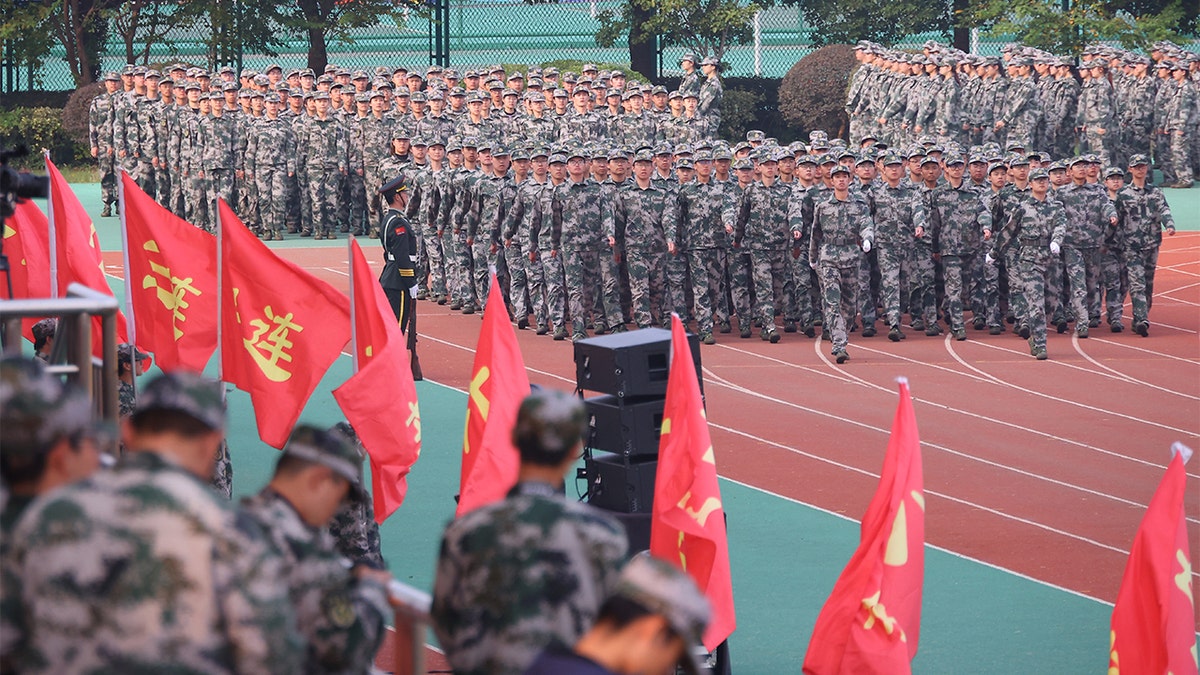Media top headlines November 15
In media news today, Kamala Harris' spokeswoman hits back at CNN, an MSNBC anchor gets slammed on Twitter for arguing Americans can afford more expensive groceries, and Axios warns about a 'reckoning' on news outlets that touted the Steele dossier
Chinese dissenter and artist Ai Weiwei warned that political correctness has begun to show shades of similarities to Mao Zedong’s infamous Cultural Revolution in China.
Weiwei sat down for an interview Friday with PBS reporter Margaret Hoover on "Firing Line" to discuss authoritarianism in China. During the discussion, Hoover noted a quote from his book when he referenced former President Donald Trump.

Paramilitary solders stand guard at Tiananmen Square where the portrait of late Chinese chairman Mao Zedong is seen, on the 50th anniversary of the start of the Cultural Revolution in Beijing, China, May 16, 2016. REUTERS/Kim Kyung-Hoon (Reuters)
GEN KEANE URGES BIDEN TO SEND MESSAGE TO CHINA THAT THEIR AGGRESSION WILL BE CONFRONTED, COUNTERED
"In your book, you were describing the directives of Mao Zedong during the Cultural Revolution that would be distributed publicly every night. And then you write — this is your quote — ‘They served a function similar to Donald Trump's midnight tweets in office. They were the direct communication of a leader's thoughts to his devoted followers, enhancing the sanctity of his authority,’" Hoover quoted.
She then asked, "So do you see Donald Trump as an authoritarian?"
Despite referencing Trump’s tweets, Weiwei disagreed with the comparison, though he did say the U.S., in many ways, has behaved like an authoritarian state.
"If you are authoritarian, you have to have a system supporting you. You cannot just be an authoritarian by yourself. But certainly, in the United States, with today’s condition, you can easily have an authoritarian. In many ways, you’re already in the authoritarian state. You just don’t know it," Weiwei said.

FILE PHOTO: Chinese artist Ai Weiwei poses for a portrait in front of his new work titled 'Pequi Tree', a 32-meter-high iron tree displayed at the park of the Serralves Museum of Contemporary Art as part of his exhibition "Intertwine" in Porto, Portugal, July 22, 2021. REUTERS/Violeta Santos Moura/File Photo (Reuters)
When Hoover pressed further, Weiwei responded that efforts for people to be "unified in a certain political correctness" have shown themselves to be more dangerous.
"It’s very philosophical. With today’s technology, we know so much more than we really understand. The information [has] become jammed. But we don’t really — and really have the knowledge, because you don’t work. You don’t — You don’t have to act on anything. You just think you’re purified by certain ideas that you agree with it. That is posing dangers to society, to an extreme divided society," Weiwei said.
When asked how the U.S. could fall into authoritarianism, Weiwei said, "I think, for a long time, the West is material. We have much more than we needed. And we are not caring about global situation. But, eventually, all the policies and the politics we play has to be examined under the global situation, such as China become a very powerful state. And how the West should deal with it."

Freshmen take part in a military training at Southeast University on October 22, 2021 in Nanjing, Jiangsu Province of China. (Photo by Yang Bo/China News Service via Getty Images) (Yang Bo/China News Service via Getty Images)
Weiwei has frequently criticized China’s policies against cultural dissenters and has spoken out against the authoritative government. In 2020, he infamously created a secret film documenting China’s brutal measures when trying to control the coronavirus outbreak.
